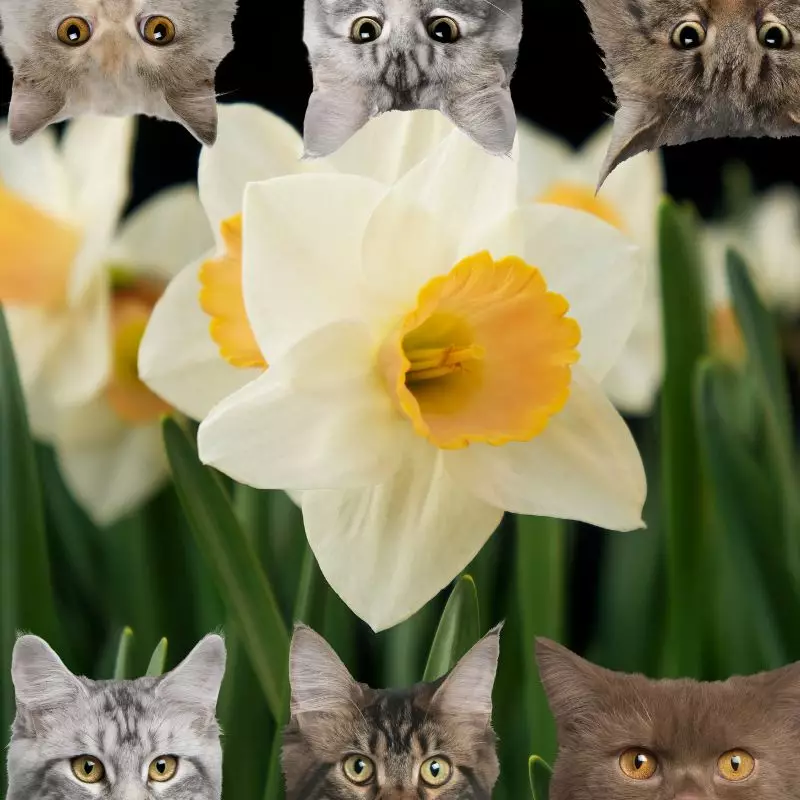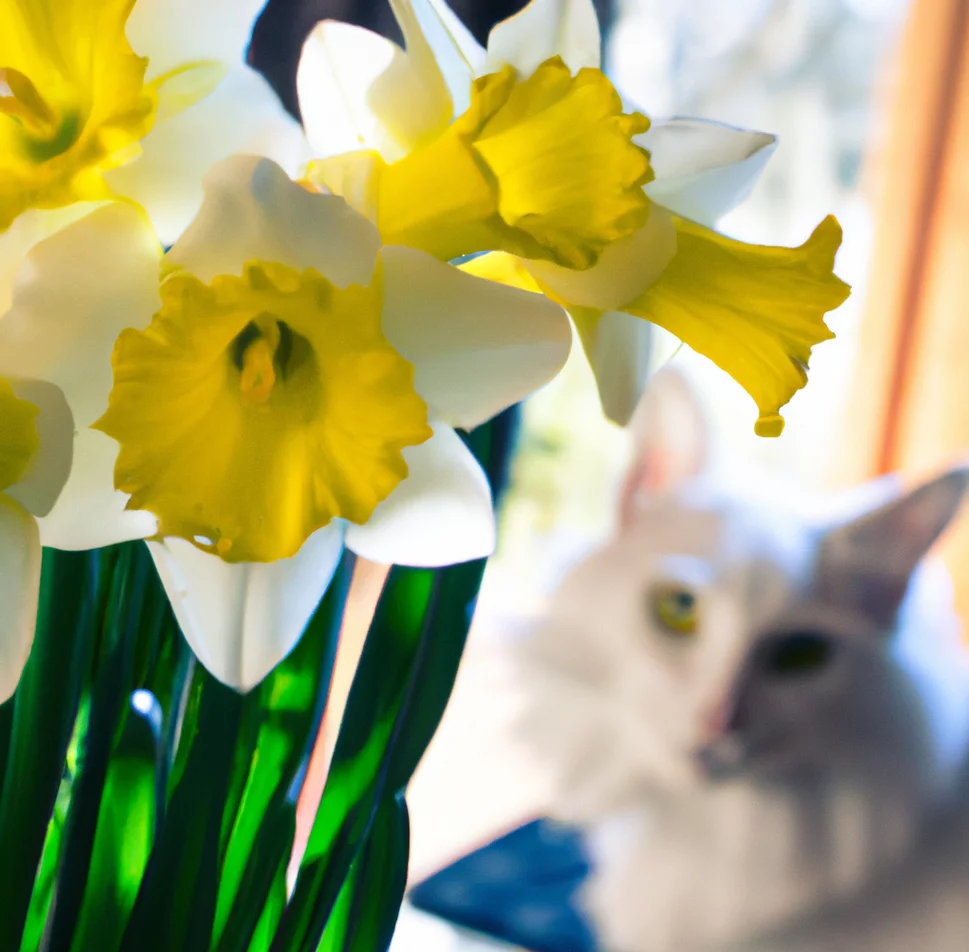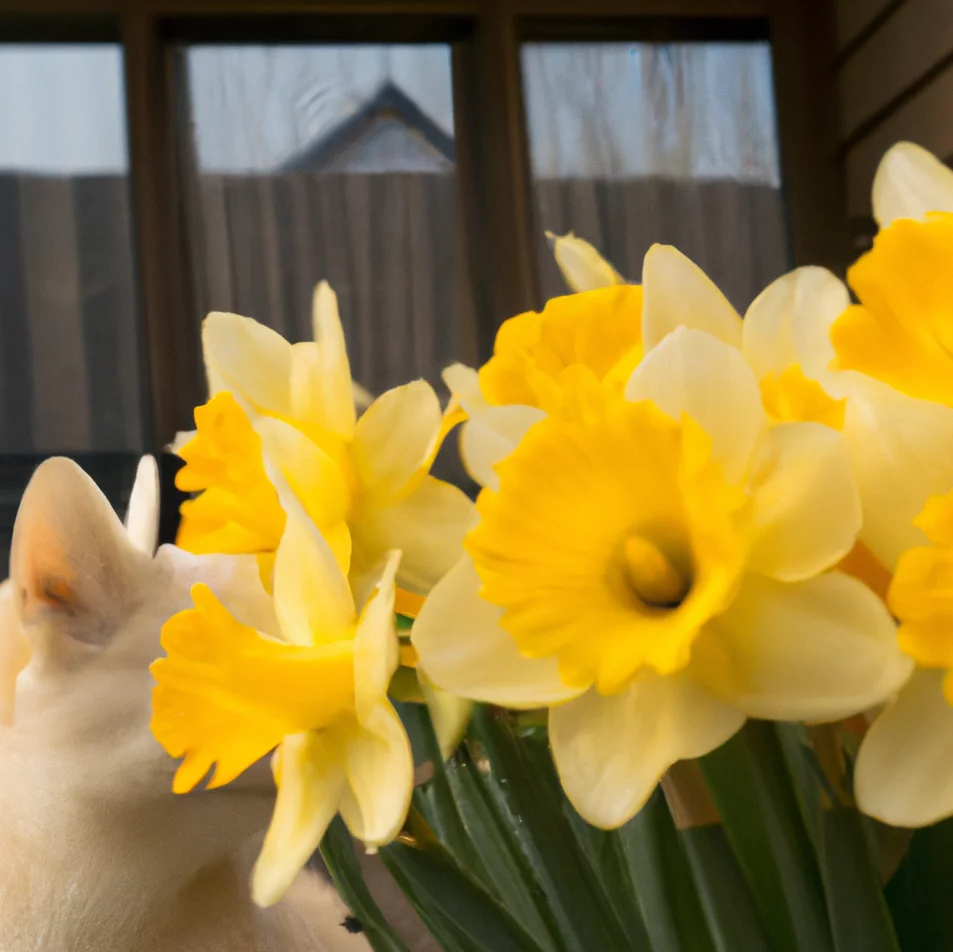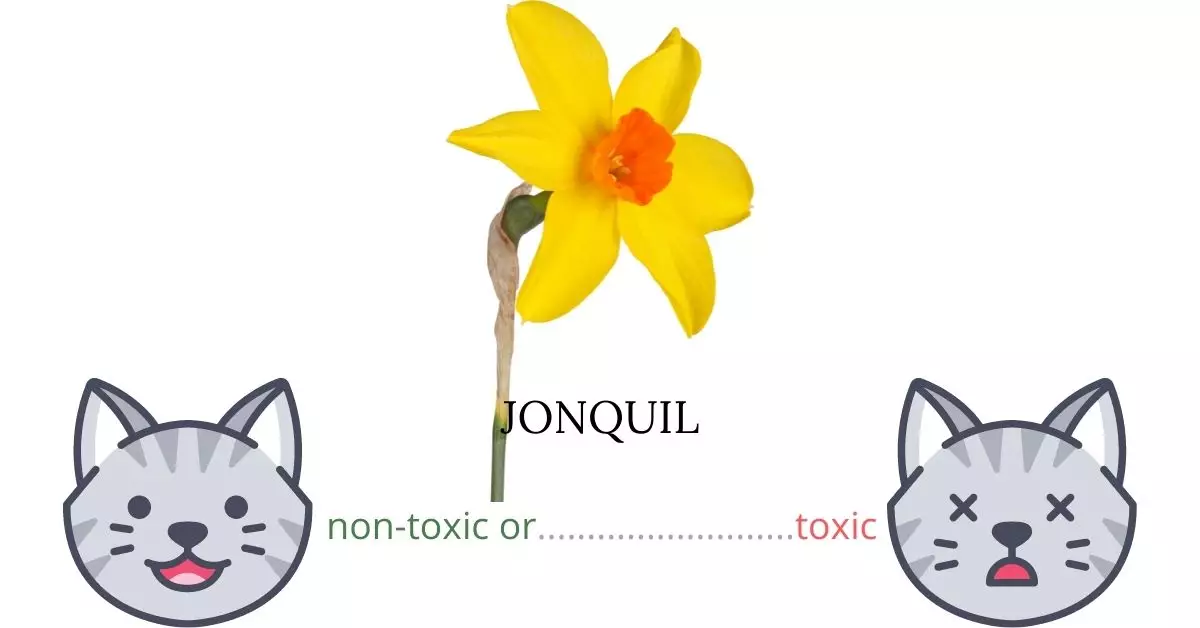Yes, jonquils are toxic to cats. The jonquil, a variety of daffodil, contains several harmful toxins such as lycorine, galantamine, glucoside scillaine, narciclasine, and calcium oxalate crystals. If consumed by a cat, it can cause symptoms ranging from gastrointestinal upset and lethargy to tremors and, in severe cases, kidney damage. While all parts of the jonquil plant possess toxic elements, the bulbs are particularly dangerous. Although cats might not typically consume large amounts of jonquils, there’s a risk if they unearth and eat the bulbs.
This article is a result of collaborative efforts with a team of experienced DVMs (doctors of veterinary medicine). With their expert guidance, and extensive research from high-authority sources such as ASPCA and PetMD, we aim to deliver accurate and current information about the potential risks various plants, like the jonquil, pose to cats.
Clinical Signs of Jonquil Poisoning in Cats

When cats come into contact with, smell, or ingest parts of the jonquil plant, they may exhibit a range of clinical symptoms. Here’s a breakdown of the typical signs of jonquil poisoning, the reasons behind them, and what part of the plant can cause each symptom:
- Vomiting: One of the initial and most common reactions to ingestion, caused by the body’s attempt to rid itself of the toxic components found in jonquil.
- Diarrhea: An irritated gastrointestinal system due to toxins present can lead to diarrhea. Consuming any part of the plant can cause this.
- Abdominal pain: This stems from irritation of the stomach and intestines after consumption of jonquil parts.
- Lethargy: Toxins in the plant can depress the cat’s central nervous system, leading to an overall lack of energy and enthusiasm.
- Sedation: Similar to lethargy, the depressive effects of the toxins on the nervous system can lead to drowsiness and reduced activity levels.
- Loss of appetite: The gastrointestinal distress caused by ingestion often results in a decreased desire to eat.
- Convulsions: Due to the effects of the toxins on the cat’s nervous system, it can lead to involuntary muscle contractions.
- Shivering: Resulting from muscular tremors and the body’s general response to toxins.
- Abnormally low blood pressure: The toxins can have a depressive effect on the heart and vascular system, causing a drop in blood pressure.
- Kidney damage: Prolonged exposure or severe poisoning can lead to kidney dysfunction, as the toxins interfere with the organ’s ability to filter and detoxify.
- Muscular tremors: Toxins from jonquils can lead to disturbances in muscle control, causing tremors.
- Cardiac arrhythmias: The toxins can impact the heart’s normal rhythm, leading to irregular heartbeats.
While serious daffodil poisoning is relatively rare, the consumption of the bulb has been responsible for the majority of severe cases. However, ingestion of jonquil flowers or leaves can also lead to poisoning. Cat owners should remain vigilant and keep these plants out of reach.
First Aid and Treatment of Jonquil Poisoning in Cats

The importance of veterinary treatment cannot be overstated. If the poisoning occurred within the recent several hours, the veterinarian will most likely induce vomiting or do gastric lavage. To minimize the absorption of poisons, activated charcoal can be also administered to your cat. The vet may prescribe medications to protect the stomach lining and minimize gastrointestinal irritation. In severe situations, intravenous fluids and electrolytes may be required to prevent dehydration. Until the poisons are eliminated from the cat’s body, the veterinarian will monitor cardiac rhythms and modify medicine doses.
Recovery from Jonquil Poisoning in Cats

Recovery from jonquil poisoning is likely with mild cases. Large doses can be fatal so this is best evaluated by a veterinarian. Once your cat is back at home, keep him or her comfortable and minimize physical activities while he or she is recuperating.
Prevention of Jonquil Poisoning in Cats
Avoid growing jonquils in your garden and bringing jonquil flowers inside your home. Be mindful of the bouquets you receive and always check if they contain toxic plants that may cause harm to your cat. If jonquils are growing within your community, always keep an eye on your cat or confine them in a cat cage or playpen.
If you love plants but have cats at home, check out these lists:





